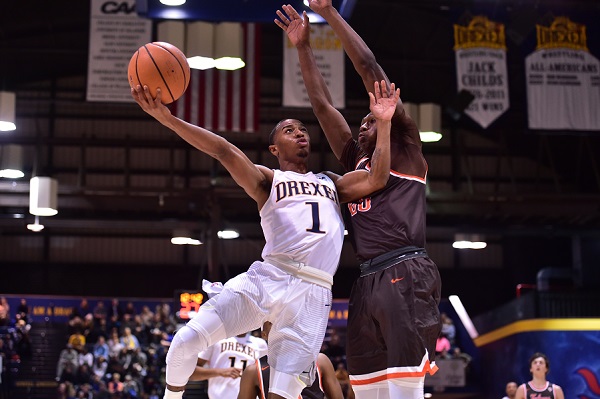Student Athletes
8.5.5

Drexel Athletics are a big part of campus culture. From basketball to field hockey, over 450 student-athletes compete in 18 Division 1 NCAA sports in the Colonial Athletic Association, the nation's top mid-major conference. Each year over 9,000 students participating in club or intramural sports. Student athletes experience unique and immense pressures. Their time demands are tremendous: taking full course loads while trying to balance strength training, practice, and travel for games, as well as maintaining social connections. Performance is often criticized, and expectations run high. Athletes are also expected to show mental "toughness" to perform in high pressure situations. As much as this mindset may help an athlete deal with the pressure and demands, it can lead to stigma around mental health and directly conflicts with the concept of counseling, which involves opening up to someone about struggles or perceived "weaknesses." It is not surprising, then, that these pressures and demands can impact a student athlete's mental health.
According to researchers at Drexel and Kean universities, nearly 25% of collegiate athletes have reported clinically relevant levels of depressive symptoms. More and more professional athletes are sharing inspiring stories around their own mental health struggles with depression, trauma, abuse, disordered eating, and substance abuse. The Drexel Counseling Center has many student athletes who use our services, and we have several counselors who are highly skilled in working with mental health concerns common to college athletes. Some things that come up in treatment may be more specific to being an athlete, such as identity or loss of identity as an athlete, managing stress and anxiety around managing a demanding schedule and competing pressures. Athletes are students too and come in for services related to things like relationship concerns, academic stress, depression, and sleep difficulties.
The Drexel University Counseling Center offers a range of confidential services which may be helpful to you, including individual, group, workshops and crisis/urgent care. We hope that you consider the Counseling Center as a resource available to you and invite you to come in to make an appointment to speak with us. Email us at counsel@drexel.edu or call 215.895.1415 to speak to someone.
Resources
The content provided here is intended for informational purposes only. It is not intended for self-diagnosis or self-treatment, nor should it replace the consultation of a trained medical or mental health professional. Please note that outside links are not under our control, and we cannot guarantee the content contained on them.